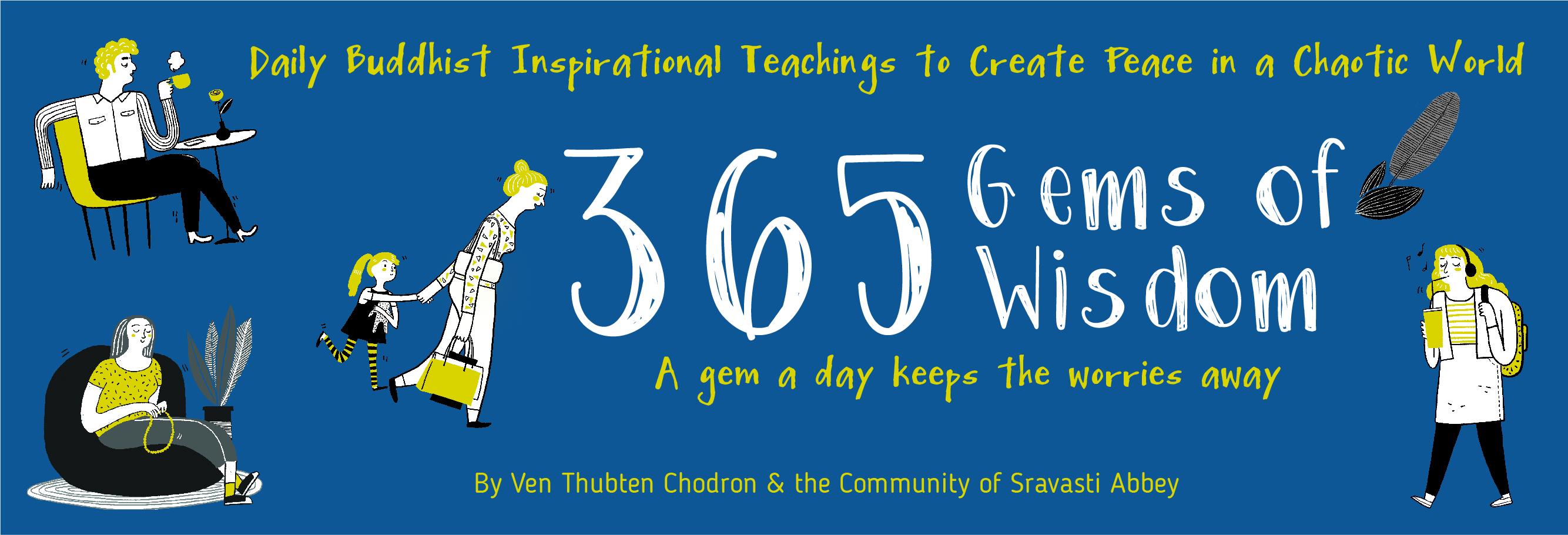April 27 : Basis of Designation
In our daily life, we say things like, “I see the cup,” but when we look, what are we really seeing? We are actually seeing just the colour and the shape. We are seeing the properties of the cup, and based on those properties, we label it as “cup”. Similarly, if we touch the cup, we say, “I touched the cup.” But what are we actually touching? What are we experiencing? We are touching the material from which the cup is made, but are we touching the cup? In other words, is the cup the material from which it is made? It is interesting in our daily life to play with this and when we touch things, to ask ourselves what it is that we are actually touching, or when we see things, to ask ourselves what it is we are actually seeing. Then observe how our mind imputes an object dependent upon those properties, and dependent upon the parts of that object. We are actually confounding the basis of the designation of the object as the object.
Whenever we examine any of the bases of the designation, it too becomes hard to find. Maybe you look at a red cup and say, “I don’t see the cup, but I see the redness of the cup.” But, how do you know you are seeing redness? What do you actually see? There are a lot of different shades of red in there, you are not seeing one kind of blanket colour, or one kind of unified thing. There is redness on the left, and there is redness on the right. You are seeing many different things. Even if we say, “I’m seeing red,” what actually is it that we are seeing? Or if we say, “I’m seeing the roundness of the cup.” What is roundness? Are you seeing the top part of the circle or the bottom part of the circle?
When we look at the cup, we are actually perceiving its attributes and its basis of designation. When we take the attributes as objects in their own right and examine them, we see that we are actually perceiving their bases of designation. On and on we go, and it becomes very difficult to find any smallest particle or any initial attribute from which everything started. This kind of reflection can help us to understand dependent origination and how things are empty of independent existence, empty of inherent existence from their side.
“365 Gems of Wisdom” e-book is out now!

